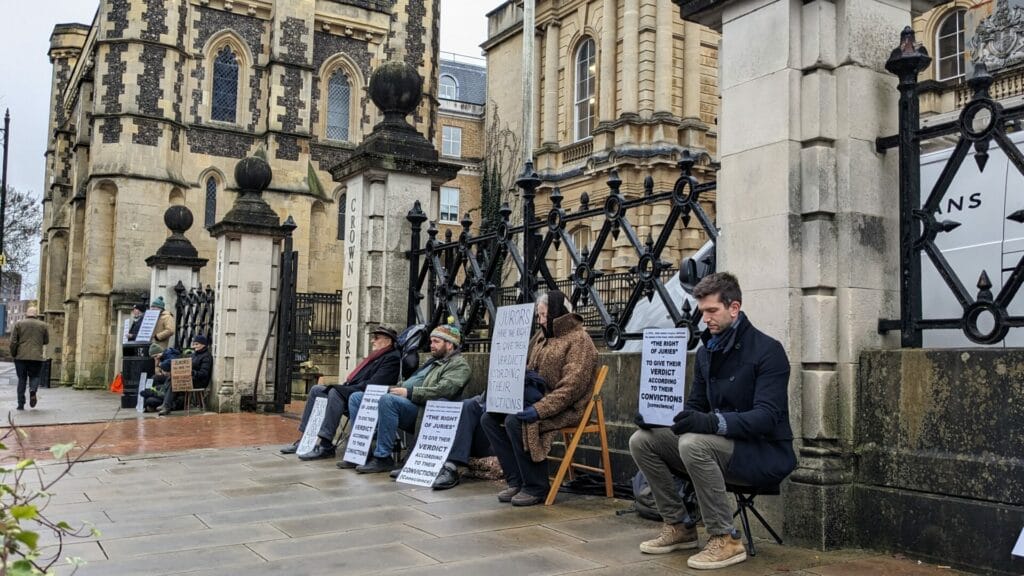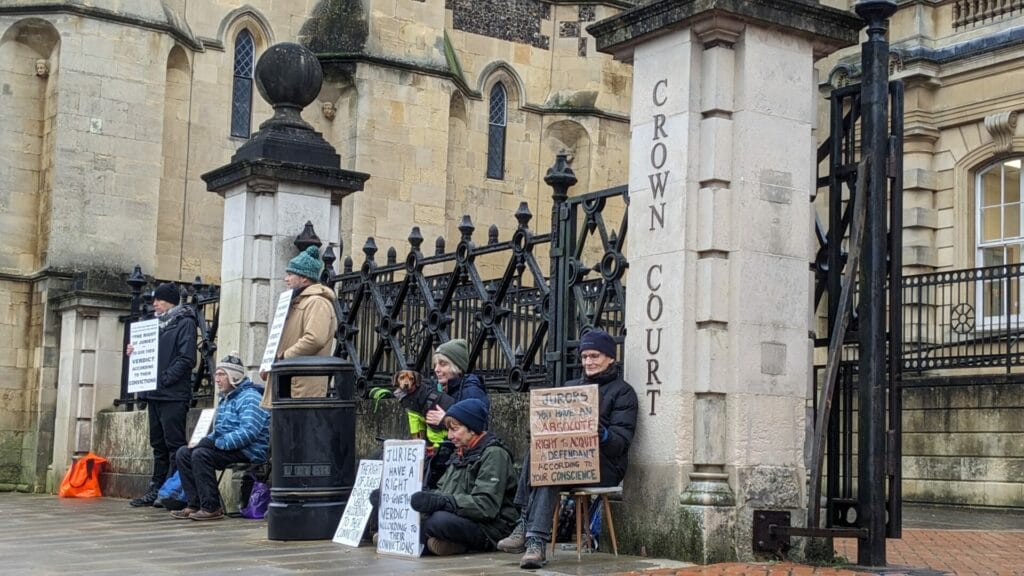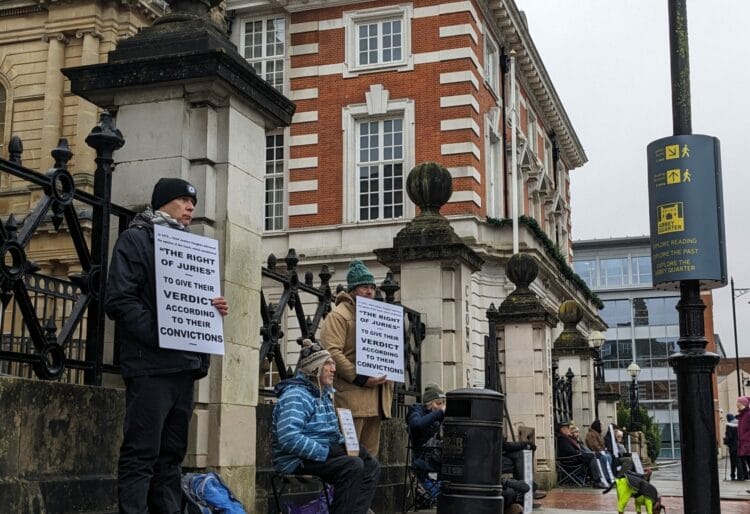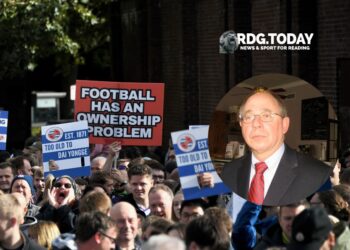READING has seen a second vigil this year advocating for the right of juries to act freely in court today, December 4.
Residents held a silent vigil outside the Crown Court in the town centre, one of many taking place around the UK with Defend Our Juries, and just weeks after a similar vigil in the autumn.
The group advocates for the right of juries to give a verdict “according to their conscience,” irrespective of the directions of the judge.
They were stationed outside the court holding signs that explained: “Juries have a right to give their verdict according to their convictions,” and “The Right of Juries.”
The campaign follows the sentencing of three Insulate Britain activists for breaching a court ruling that stated that they were not allowed to mention the climate crisis as their motivation while on trial as a result of taking part in climate protests.
It also comes after the prosecution of Trudi Warner, who was found in contempt of court for sitting outside the trial of the three activists at Inner London Crown Court holding up a protest sign.
As such, those taking part in the vigil run the risk of arrest.
The movement has gained support from a number of law academics, including Professor Richard Vogler.
He said: “George Orwell noticed the tendency of repressive law to degenerate into farce, when truth becomes a lie and common sense is heresy.
“This is worth remembering now that the solicitor general, Michael Tomlinson KC, has concluded that it is right to take action against Trudi Warner, for holding up a sign outside a criminal court, simply proclaiming one of the fundamental principles of the common law: the right of a jury to decide a case according to its conscience.”

One of those taking part, Dave, said: “The rights of citizens have always been balanced by juries.
“The process works because everyone gets to hear the evidence– but when the state becomes more power hungry, there have to be checks and balances.
“One of those is the principle marked by the sign hanging up by the Old Bailey, which is what we are showing on our signs.”
The signs refer to a legal precedent set in 1670 that codifies the right of the jury to uphold their own verdict when it is not approved of or recommended by the judge in a trial.
A ‘perverse’ verdict, where a jury gives a not guilty verdict regardless of whether they believe a defendant has broken the law, has been part of British law since then.
It means that a jury can acquit when they believe the law has been misapplied, that a given sentence might be too harsh, or simply that the relevant laws themselves are unjust.

He explained: “That case saw an abusive judge in an abusive system, but the Quaker movement found the person innocent because they felt there were no grounds to take punitive action.
“So we are taking direct, non-violent action because we feel so strongly about it.”
Those taking part also received support from members of the public, as he explained he was thanked by many passers-by.
“I’ve done jury service myself, and the evidence is always prime– but if the judge tells you you must find a person guilty anyway, that’s an abuse of power.”
He added of the potential risk of prosecution the action bears: “It’s a big consideration; I have a wife and kids, and things that I need to do this afternoon.
“But being willing to do something if it comes to it shows how strongly we feel about holding onto those rights that people fought hard for.
“It’s really vital, that right– a linchpin, where all of us as citizens can use our compassion and conscience, and that’s why we have juries, to maintain the innocence until proven guilt.
“Some of us have walking sticks- we’re steely, and there’s a lot of wisdom in the crowd who are taking part.”
































